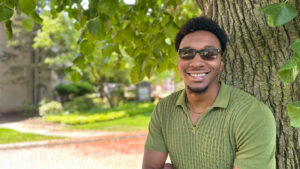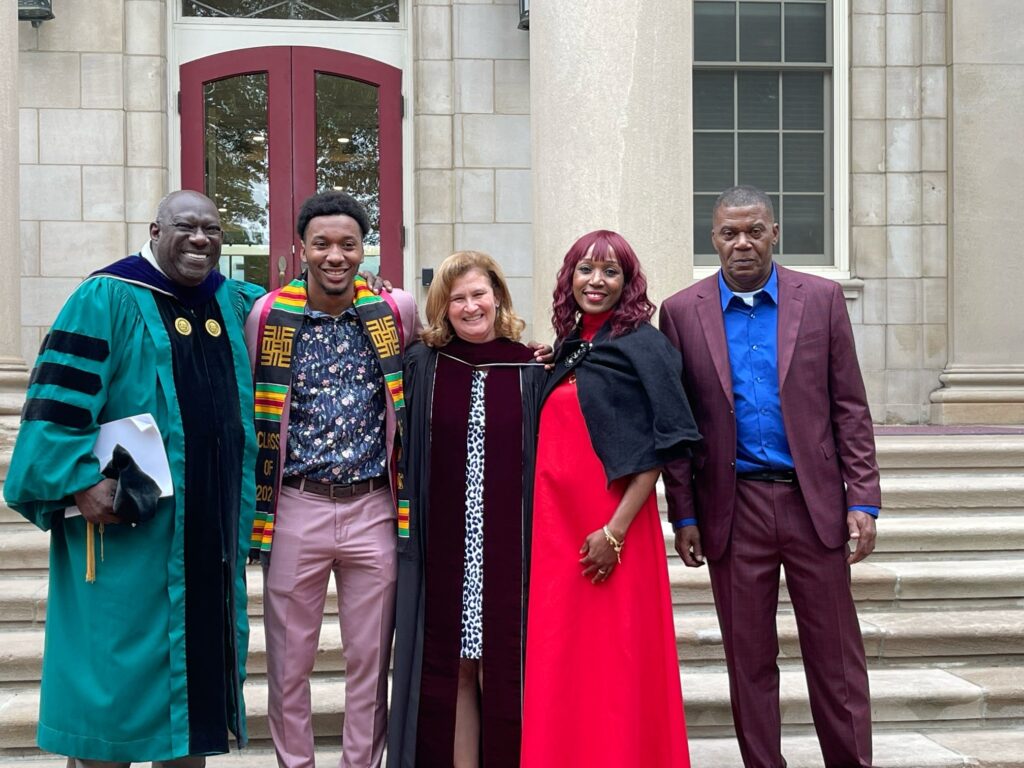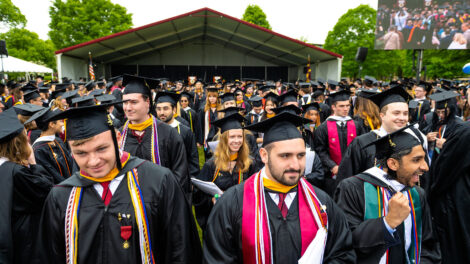Jonathan Ford ’23 to join Peace Corps in Moldova
By Bryan Hay
Jonathan Ford ’23 didn’t want to take the traditional path followed by many students pursuing careers in finance.
He not only joined the Peace Corps but also left it up to the international development organization to place him where it thought he would have the most positive impact.
In October, Ford will be headed to Moldova, an eastern European country and former Soviet republic that sits between Ukraine and Romania. Over the course of his two-year assignment, he will work to help build communities in the democratic nation that has been badly affected by the war in Ukraine.

Jonathan Ford ’23
“I chose to let them place me wherever they thought I would be best suited,” says Ford, a Gladstone Whitman Fellow at Lafayette who graduated May 20 with a degree in economics and a minor in psychology. “I didn’t want to take the traditional route of most of the students who go into finance. I decided that I wanted to make a difference in a bold way.”
Ford, who plans on graduate school after the Peace Corps with his sights set on working for the International Monetary Fund, is most interested in community development. He developed that passion while assisting Gladstone “Fluney” Hutchinson, associate professor of economics and policy studies and founder of Lafayette’s Economic Empowerment and Global Learning Project, who is co-leading a multiyear collaborative co-learning effort aimed at bringing social and economic redress to West Baltimore communities.
This collaboration has involved Lafayette faculty and students partnering with diversely experienced West Baltimore stakeholders in developing recommendations to transform communities into places of economic prosperity and community wealth and improve their well-being.
“Since I was already on the project for West Baltimore, I figured that the Peace Corps was a logical path forward,” Ford says. “Using what I learned in West Baltimore, I’ll be communicating with stakeholders and trying to figure out how they can best collaborate with each other.”
Ford has no worries about being stationed in a volatile part of the world.
“When you’re in that type of situation, you’re not worried about whether somebody is Black or white,” he says. “The only thing you’re worried about is how can I help myself be the most productive to help people and communities in that area of the world.”
Despite the challenges and risks, Peace Corps assignments are highly competitive.
“The Peace Corps is about being an ambassador for America,” Hutchinson says. “It requires the best balance of good academics, project management, problem- solving, smart collaborative skills, and displaying the best virtues of America.”

(Left to right): Gladstone “Fluney” Hutchinson, Jonathan Ford ’23, President Nicole Hurd and Ford’s parents, Latoya and John Ford.
Ford’s Peace Corps application was endorsed by President Nicole Hurd, David Stifel, Charles A. Dana Professor of Economics and department head, and Hutchinson.
“It’s a competitive process because the success contributes to others around the world and displays the American paradigm of democracy and markets,” Hutchinson adds. “The benefits to the awardee are tremendous in terms of experiential learning and graduate school and federal job opportunities. Essentially, no side can get it wrong.”
Raised in New York City, Ford was initially attracted to Lafayette because of its Division I soccer program–he played left wing–and the opportunity to study economics in a mind-opening manner.
“I think when people think about economics, they just think business,” he says. “They don’t really realize that economics applies to everything. You can apply it to anything in the world. It’s just important to realize that there are other options available for you. You just have to look for them.”
The opportunity to work on the West Baltimore project was revelatory for him.
“When Prof. Hutchinson was able to give me an opportunity to join the West Baltimore project, and once I saw the impact that it would create, I knew that was the path that I wanted to go down,” Ford says.
Looking forward to his work in Moldova, Ford is eager to learn Romanian, the nation’s primary language. But for him, there’s much more. “I will get to apply everything that I learned about economics here at Lafayette,” he says. “Knowledge is power. But it’s really about the execution of knowledge; that is the power. I think that’s the important part.”

